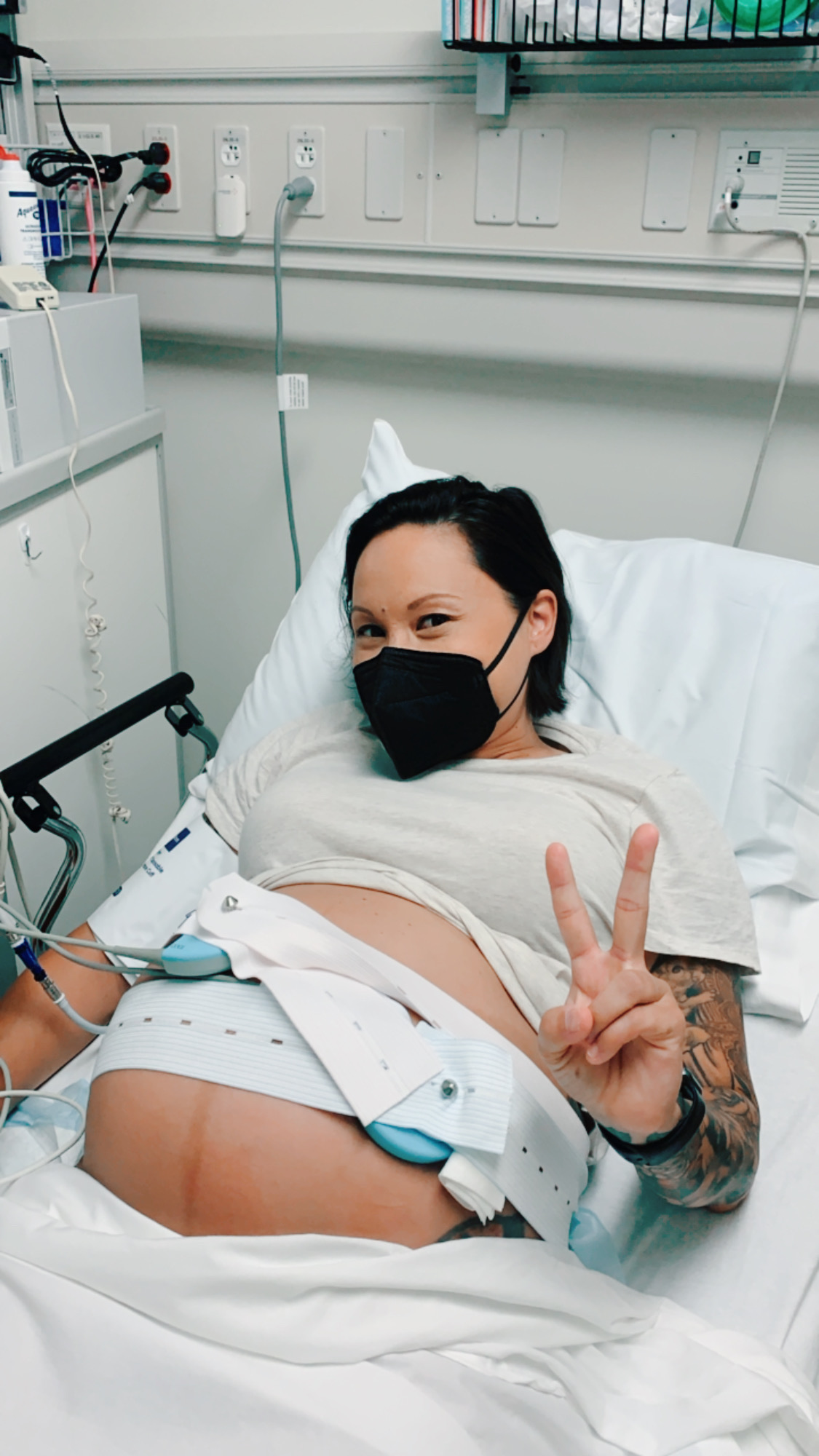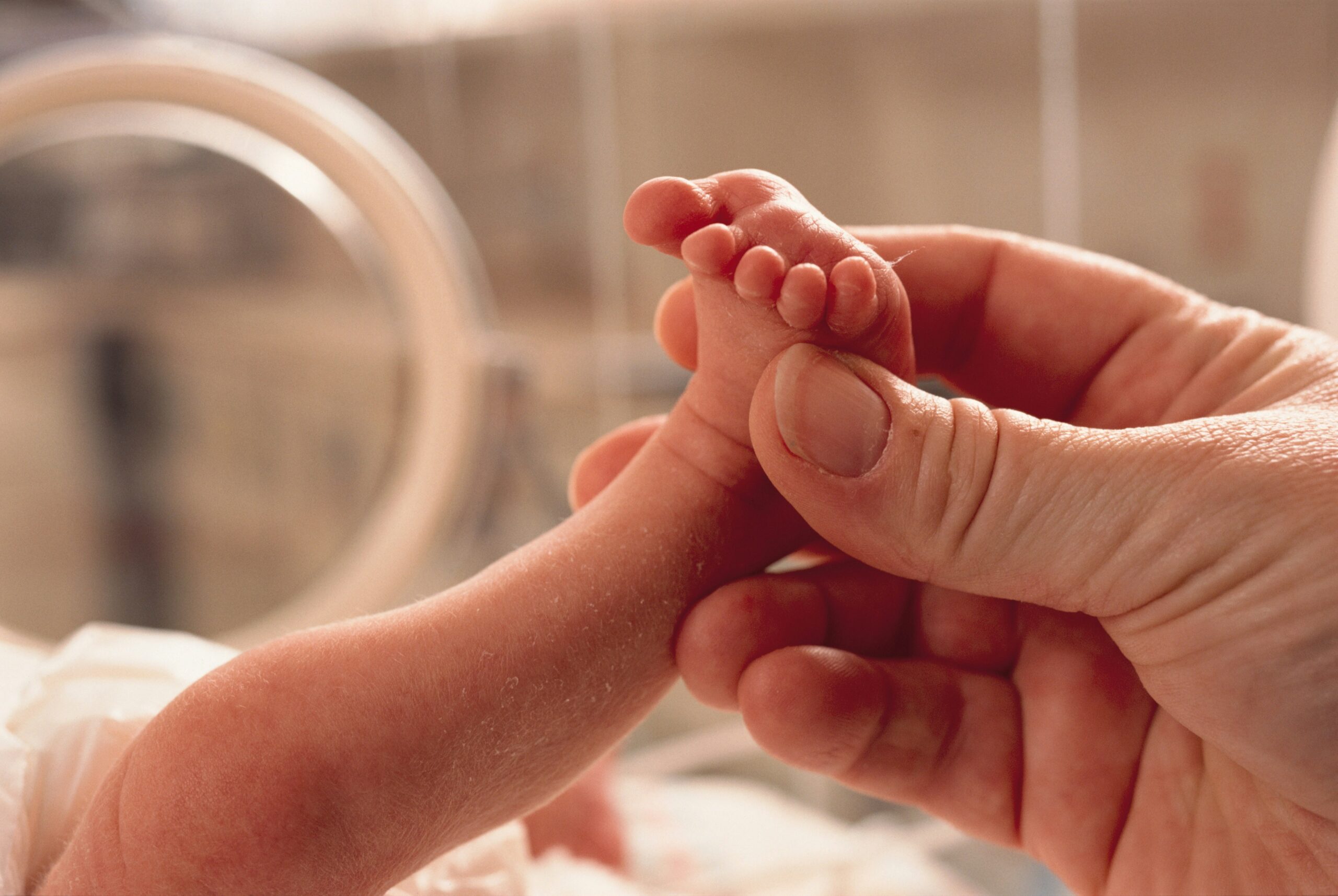I’ve come to realize that life is full of experiences glued together by “the and effect.”
I learned the hard way that you can have post-childbirth symptoms and have late-stage cancer.
I was in great shape, energetic and exhausted, frustrated—especially tired of the physical symptoms after giving birth that only grew more pervasive. And the lack of solutions that actually resolved my issues.
I was healthy, active, acing my annual physical and I had late stage rectal cancer threatening my life.
My oncologist sees scenarios full of “the and effect” all the time as more and more young people like me are walking into the clinic with late-stage colorectal cancer and leaving with life-altering ramifications. And that is for those that they are able to save.
Skilled physicians on the front lines care deeply and still miss the alarm signals that lead to more conclusive cancer screening.
The system both saved me and failed me.
My story is not glamorous and I’m sharing my truth so that your life story does not mirror mine.
Eleven years ago I became a mom. Helpful friends shared the list of items to bring home from the hospital (for free!), the best breast pumps for working moms, baby bottle sanitization and leak-proof brands that saved countless hours doing my own test research.
I was tipped early to women’s health physical therapy before and after every pregnancy. The hacks were endless—and I took copious notes from other moms that earned their title before me. Yet now going through three pregnancies, it’s become abundantly clear there are crucial mom hacks that were not discussed in my circles.
We didn’t talk much about the physical ramifications of childbirth, mental health and prioritization of self-care. I never missed a standard check-up for the kids as a working mom, yet while I visited my doctor’s office I was not relentless about demanding science-backed answers for my concerns.
Did I have rectal bleeding? Yes.
Did I have hemorrhoids? Yes.
Did I have increased urgency to go to the bathroom? Yes.
Did I have urgency to poop? Yes.
Did I feel tired? Oh definitely, YES!
I was down-right exhausted at 39 years old.
I was a mom of three boys in the best shape of my life the day I met my cancer, even more so than when I was a professional actor and Broadway vocalist.
I twirled our boys around as we danced together after family dinners and chased them to travel baseball games. We were in the Bahamas for vacation with family friends the week before my diagnosis.
Our Peters Party of Five was not letting life pass us by without saying “yes” to new experiences. And when we returned home, everything changed overnight.
I never knew anything about colorectal cancer and its rise in young people. Not until I became one of the skyrocketing numbers of young-onset colorectal cancer cases.
I was diagnosed with Stage 3 rectal cancer on June 7, 2021.
After a prescription medication was not approved by insurance, I was referred to a gastroenterologist who confirmed that post-childbirth symptoms are very similar to those of colorectal cancer.
Even though I was bleeding every time I pooped, previous physicians assumed, “This woman is healthy, possibly with gut health issues. You’re just having the usual post-childbirth symptoms, nothing to worry about.”
I knew I couldn’t sit tight — it was becoming increasingly harder to sit anywhere, except the toilet.
I was having increasingly urgent bowel movements, blood in my poop and the texture resembled Cheetos. The toilet filled with blood when I had a movement, so much so that my body could not keep up blood production at the rate I needed resulting in being severely anemic at diagnosis. While rectal bleeding is common, it is not normal.
And now I’m fed up.
Frustrated that by 2030, colorectal cancer will be the number one killer of people diagnosed under the age of 50 according to the American Cancer Society.
Even one of the symptoms should prompt a front-line doctor to prescribe screening like a colonoscopy or a poop test. And yet we are sitting right on top of the solution that can save lives, if only people would BE seen.
I had to be my own relentless advocate in the middle of a health system that was not stepping up to provide the care and testing I needed.
If I had waited for the system to prompt a colonoscopy when I turned 45 years old, I would not be here today. No one should have to go through being dismissed, unheard and unseen—and we have to start by taking care of ourselves first so we can take care of others we care about.
This is why I started the BeSeen.care movement. We are working toward the goal of 100,000 people taking the pledge to BE SEEN. When you take the free pledge, it means you’ll make your own preventative healthcare plan including important milestone tests, like a colonoscopy, and know the symptoms of colorectal cancer.
You can be young, healthy and have colorectal cancer. You can also survive it and go on to help pave the road of advocacy for others. After all, I’m proof.
Author
-

Marisa Peters is a women's health advocate, rectal cancer survivor and Broadway vocalist turned keynote speaker. She has been featured in The NY Times, The Kelly Clarkson Show, US News & World Report and written for Katie Couric Media, VoyageLA and more. Marisa served as the Chief People Officer at VideoAmp recognized as the #1 Best Place to Work by AdAge in addition to posts at Amazon, Sony Pictures and Atom Tickets. She is singing most days for her favorite audience: her husband, Josh, and their three boys in Los Angeles where they launched the BE SEEN movement.
View all posts




